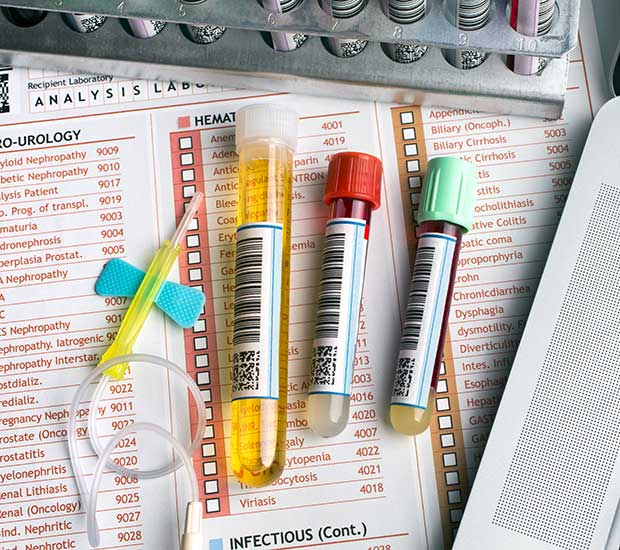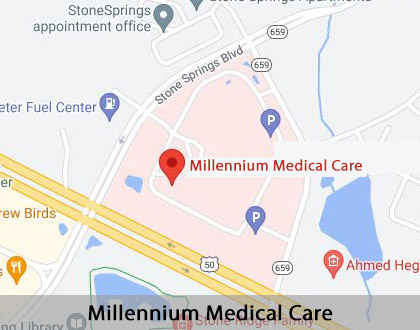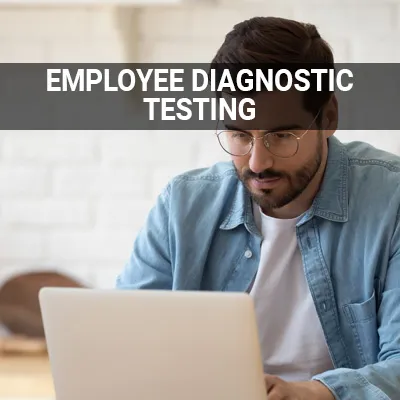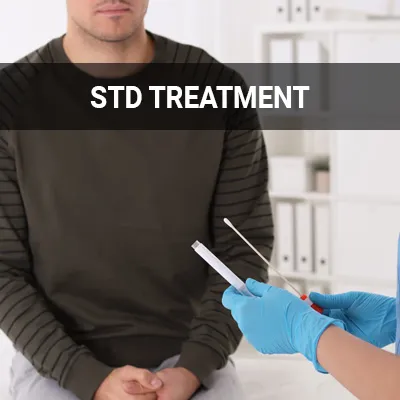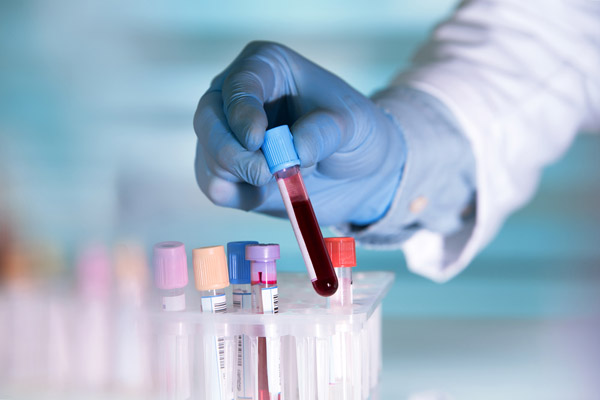Lab Testing at Urgent Care Sterling, VA
Laboratory testing is one of the most vital parts of urgent care. It allows us to accurately diagnose conditions and illnesses that we cannot diagnose by evaluating your symptoms and health history alone. Laboratory testing can often show whether or not an illness or disease is present or help our doctors make an informed and correct diagnosis.
Laboratory testing is available at Millennium Medical Care Stone Springs in Sterling and the surrounding area. Testing at an urgent care facility can catch health problems before they have the chance to worsen. We can help. Call us today at (703) 665-3242 to schedule an appointment or to learn more about our services.
Understanding Laboratory Testing
Laboratory testing is a term used to describe a series of tests and procedures that help medical professionals effectively and accurately diagnose their patient's condition. Physicians typically use laboratory tests to diagnose a disease or condition, identify any changes in a patient's health that are not noticeable by observation, and evaluate the patient's response to treatment.
Unlike other diagnostic tests that we can conduct inside an urgent care facility, laboratory testing involves sending samples to a lab for analysis. Depending on the type of laboratory test performed, results may indicate a particular condition's presence (or lack thereof). Other tests may not reveal if a condition is present but aid in the general process of diagnosis.
Facts from Lab Tests Online
- Lab tests can recognize conditions that are otherwise difficult or impossible to diagnose. They can be used to screen for, diagnose, and monitor many different conditions.
- There is no such thing as a perfect test, although testing provides accurate results most of the time.
- Lab test results may vary from lab to lab.
- Numerous factors can interfere with a laboratory test result.
- Only highly trained medical professionals should perform laboratory testing.
Questions to Ask Your Urgent Care Provider
- Why are these tests necessary to confirm my diagnosis?
- What do the laboratory tests show? What do they mean?
- How will my test results be analyzed and used?
- What tests have you ordered? What are they used for determining?
- How much will the test cost?
- How long will it take for the results to come? Who will be contacting me to inform me of the results?
- How long should I wait after the tests to contact you if I do not hear back?
- Are there any risks or side effects that may occur as a result of taking the tests?
- Are these the only tests I need? Or will I require further testing at a later date?
- Are the laboratory tests necessary to confirm my diagnosis?
- How accurate are the test results? Is there any way they could be wrong?
- What do I do now that the test results have come? What is the next step?
“Unlike other diagnostic tests that we can conduct inside an urgent care facility, laboratory testing involves sending samples to a lab for analysis.”
Tuberculosis Testing
It can be challenging to treat tuberculosis once it has progressed. However, treatment is relatively easy in its early stages. As such, patients should contact an urgent care facility as soon as symptoms manifest. Though tuberculosis typically has a slow onset, it can progress rapidly once the first signs have shown up. There are two different types of tuberculosis testing: skin testing, also known as purified protein derivative (PPD) testing, and a tuberculosis blood test.
A PPD test often requires two trips to our urgent care facility and requires taking a skin sample. A tuberculosis blood test is relatively simple. After drawing the blood sample, we will send it to a laboratory. There, the laboratory technicians will examine the sample before determining the results. Results will either be positive or negative. A positive test means that the patient has tuberculosis, while a negative test indicates that the patient does not have tuberculosis.
If the blood test comes back positive, then the urgent care physician will begin devising a treatment plan for the patient to fight off the infection. Since tuberculosis is a bacterial infection, it can usually be treated with antibiotics. Tuberculosis typically has a favorable prognosis, especially in its early stages and symptoms have yet to progress.
“There are two different types of tuberculosis testing: skin testing, also known as purified protein derivative (PPD) testing, and a tuberculosis blood test.”
Electrocardiogram (EKG)
An electrocardiogram, also known as an EKG or ECG, is a test that records the electrical signals in the heart. It is a non-invasive and relatively quick procedure. All patients with undiagnosed heart problems should undergo an EKG to address the root cause of their heart- and chest-related symptoms. Unfortunately, many individuals suffering from heart disease underestimate their symptoms until it is too late. Patients suffering any of the following symptoms should seek medical attention immediately:
- Constant chest pain
- Heart palpitations
- Shortness of breath
- Rapid pulse
Early detection of heart problems can facilitate greatly in treating and managing one's condition. EKGs are primarily performed to determine whether the heart is functioning correctly. They can often detect irregular heartbeats, blocked arteries of the heart, any structural problems in the heart's chamber, and the patient's likelihood of a heart attack. They may also determine how well a pacemaker or other heart disease treatment device is working.
An EKG works by recording the rhythm and strength of your heartbeat. Results are often available the same day, though a second visit is sometimes necessary. The process involves hooking up a series of wires and electrical impulses to the patient's chest and monitoring the heart's activity, gathering information from 12 different heart sections.
“Early detection of heart problems can facilitate greatly in treating and managing one’s condition.”
Check out what others are saying about our services on Yelp: Lab Testing at Urgent Care in Sterling, VA
Other Lab Test
While many conditions can be diagnosed confidently without laboratory tests, quality laboratory testing is sometimes necessary to confirm a diagnosis. Aside from cardiovascular issues and tuberculosis, laboratory tests can help detect and diagnose a wide range of issues, including but not limited to pregnancy and sexually transmitted diseases (STDs). An urgent care physician may call for such testing if a patient's symptoms and diagnosis are difficult to piece together.
Pregnancy testing is one of the most common tests conducted in any urgent care facility. Childbearing women who are experiencing bloating, fatigue, nausea, and sore breasts and have reason to believe that pregnancy is a possibility should get tested for pregnancy immediately, both for their safety and for the unborn child's. If the test results rule out pregnancy, our staff may still help diagnose and treat the symptoms' root cause.
STD testing is also commonly performed at any given urgent care facility. Patients should undergo such tests regularly, especially if they are going to be sexually active with a new partner or suspect they may have contracted an STD. Regular STD testing is especially crucial as many STDs can be asymptomatic for some time and, consequently, be spread unknowingly.
“While many conditions can be diagnosed confidently without laboratory tests, quality laboratory testing is sometimes necessary to confirm a diagnosis.”
Questions Answered on This Page
Q. What is laboratory testing?
Q. What is involved in a tuberculosis test?
Q. What is an electrocardiogram?
People Also Ask
Q. What are the common symptoms of sexually transmitted diseases?
Q. What does employee diagnostic testing involve?
Q. What are some of the common triggers of asthma?
Q. What types of reactions can occur from bites and stings?
Q. When should I seek professional treatment for vomiting or diarrhea?
Frequently Asked Questions
Q. How long will it take before I get my lab test results back?
A. It depends on the type of laboratory test administered. In most cases, the testing results are available within 24 hours. However, some tests can take up to over a week before results are conclusive. Here at our urgent care facility, we make an effort to notify you quickly and let you know your results as soon as we receive them, regardless of the outcome. After the results arrive, we will discuss all treatment options (if needed) with you.
Q. Will I receive a copy of my laboratory test results?
A. Yes, you will typically receive a copy of your results. In the case of a positive result, we often have patients come in to discuss the results and treatment options. However, we can also send a copy of the results via mail or e-mail. You can talk directly with your physician about your options.
Q. How much does a laboratory test usually cost?
A. The cost varies depending on the test. Be sure to consult with your urgent care physician if you have any concerns about cost. In many instances, insurance will cover any testing procedures. If your insurance does not cover testing or you do not have health insurance, there may be other options we can discuss. In some cases, other diagnostic procedures can replace laboratory testing.
Q. What happens to my blood/urine sample after I provide it?
A. Your sample will first be labeled with unique identifiers, such as your name and date of birth, before being sent to a laboratory for careful analysis. Once results have been declared conclusive, they will be sent back to us. We will then contact you to discuss these results. If the results are positive, we will discuss possible treatment options; if the results are negative, we will discuss prevention methods. In any case, we will be there to answer any questions you may have throughout the process.
Q. What does it mean when a test result comes back positive or negative?
A. A positive test result indicates that the expected substance has been found in the blood or urine sample. In other words, it has tested positive for the presence of the tested substance. Conversely, a negative test result indicates that the expected substance has not been found in the blood or urine sample — or, that it has tested negative for the presence of the tested substance.
Start Feeling Better – Visit Us Today
By visiting us as soon as possible, our team can help get you the professional treatment you need. Instead of waiting around and allowing the symptoms to get worse, we can provide you with stronger medication and treatment options instead of ineffective store-bought products.
Definitions
Come In Today
Proper diagnosis is key to appropriate treatment. Often, this necessitates laboratory testing. We at Millennium Medical Care Stone Springs can help. Call us today at 703-665-3242 to schedule an appointment or to learn more about our services. We also accept walk-ins.
Helpful Related Links
- American Journal of Medicine. American Journal of Medicine. 2023
- American Medical Association (AMA). American Medical Association (AMA). 2023
- American Medical Society For Sports Medicine (AMSSM). American Medical Society For Sports Medicine. 2023
- American Trauma Society. American Trauma Society. 2023
- John Hopkins Medicine Orthopaedic Surgery. John Hopkins Medicine Orthopaedic Surgery. 2023
- National Council on Aging. National Council on Aging. 2023
- Orthopaedic Surgery: Association of American Medical Colleges. Orthopaedic Surgery: Association of American Medical Colleges. 2023
- Radiological Society of North America. Radiological Society of North America. 2023
About our business and website security
- Millennium Medical Care Stone Springs was established in 2023.
- We accept the following payment methods: American Express, Cash, Discover, MasterCard, and Visa
- We serve patients from the following counties: Loudoun County
- We serve patients from the following cities: South Riding, Brambleton, Sterling, Ashburn, and Aldie
- National Provider Identifier Database (1427061381). View NPI Registry Information
- Healthgrades. View Background Information and Reviews
- Norton Safe Web. View Details
- Trend Micro Site Safety Center. View Details
Back to top of Lab Testing at Urgent Care
